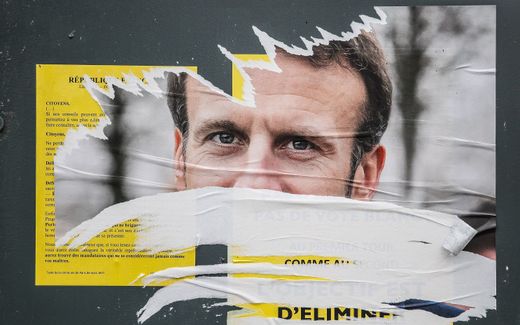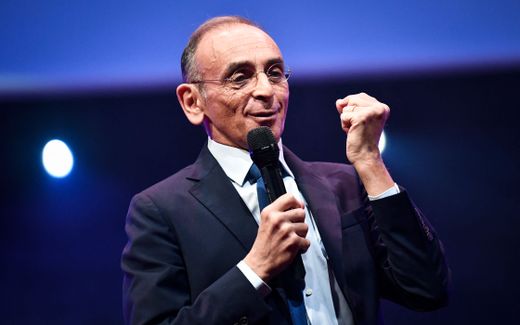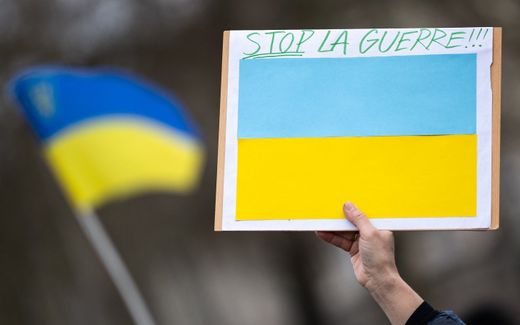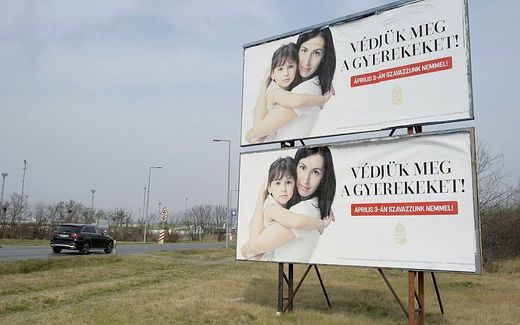Evangelical pastor in secular French parliament
09-04-2022
Western Europe
Mark Wallet, RD
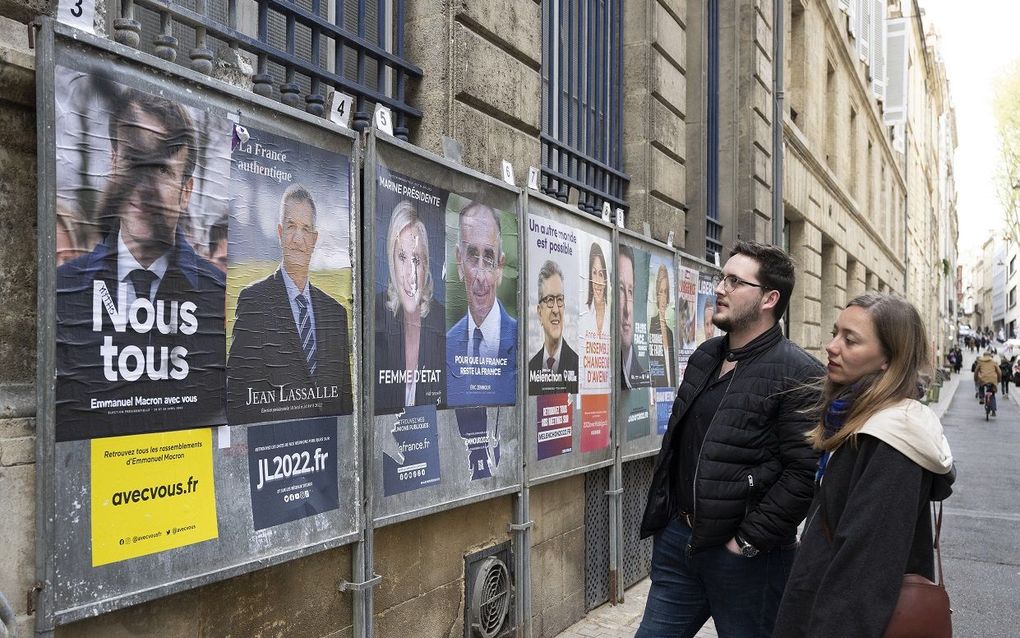
French billboard for the election. Photo EPA, Caroline Blumberg
Western Europe
If the newly elected French president wants to, he can visit pastor Thierry Le Gall for spiritual care. Le Gall is always available for French politicians.
Many French churches are empty on Sunday. But Evangelical Protestantism has the wind in its sails. Every nine days, a new congregation is added somewhere in France. The number of Evangelical Protestants is currently close to one million. Although that number is not very large compared to the total number of French inhabitants (67 million), the denomination regularly appears in the spotlight because of its fast growth.
Part of the French look at the Evangelical Protestants with open scepticism: they are quick to call them sectarian. That sentiment even lives among government officials. Minister of Citizenship, Marlène Schiappa, told French tv watchers in January 2021 that "Evangelists" (sic) ask girls for a certificate proving their virginity when they get married. A month later, her colleague from Domestic Affairs, Gérald Darmanin, labelled the Evangelicals on television as a "significant problem." He referred to the foreign donations they would receive.
The government officials made their statements in connection to a proposal that aims to give the State more possibilities to intervene in religious groups. The goal of the Law to Strengthen Respect for Republican Values is undisputed: curbing Islamism on French soil. Evangelical Protestants, however, become the head of lynchpin in an attempt to prevent Muslims from feeling cornered.
Those days, pastor Thierry Le Gall was busy explaining to parliamentarians that Evangelical protestants already have had a long history in France, have never caused any problems, and do not ask for virginity certificates.
"Giving explanations is an important part of my work", Le Gall says in a restaurant on Avenue du Maine in Paris. On this long boulevard, the National Council of French Evangelicals (CNEF) office is located as well. This organisation exempted the pastor in 2016 from other duties so that he has time to work among the members of Parliament.
In France, church and State are strictly kept separate. Therefore, one would not expect a special pastor for parliamentarians. "I am not hired by the Parliament and do not have an office in the Parliament building. That would be impossible. I respect the rules and only work by invitation. There is also a Roman-Catholic clergyman to whom politicians can appeal."
“There is an enormous spiritual hunger among the French”
What does your day look like?
"Members of Parliament are present in Paris from Tuesday until Thursday. These days I am available for conversations. It could be that politicians need pastoral support or have questions about ethical issues. Thus, my days are never the same."
Do you have examples of questions you are asked?
"Examples are questions about moral considerations concerning migration policies or how Protestants deal with homosexual relationships. Members of Parliament want to know whether same-sex couples are allowed to get married in our churches or whether they can be baptised. Christian Parliamentarians ask me to think along about dilemmas concerning the end of life and euthanasia."
You mention several issues that are not very prominent among Protestants. Which voice do you represent?
The issues are complex, and every case is unique. My task is to help people to form their own judgment. I work from an Evangelical background. Take a look at the discussion around surrogacy. In that issue, there is much at stake, I believe. Often poor women become surrogate mothers. Therefore, I ask questions about the commercialising of surrogacy, just like about the psychological impact on women."
Do people listen to you?
"Certainly, it helps Members of Parliament to form their judgment. Overall, I use general arguments; I do not come up with Bible verses."
Are you a lobbyist for Christian affairs?
"No, I am not. I ask questions, explain things, but that's all."
How many Christian Members of Parliament are there in France?
"About 30 per cent of the representatives have a Christian background, I think. Most of them are Roman Catholic. Maybe about 1 per cent is Protestant."
The CNEF and the Protestant Federation of France (FDF) protested strongly against the Law to Strengthen Respect for Republican Values, implemented last year. Did that help?
"I think it did. There is a greater understanding of our position in the debate. Nevertheless, the law remains a point of concern. Especially for independent churches, it can cause big problems. The prefect (representative of the central authority of the departments, MW) received much power to check religious organisations. It really depends on who it is: the law can be interpreted narrowly or very broadly."
How active are French Evangelicals in politics?
"They have become more active since same-sex marriage was legalised in 2012-2013. That decision hit our convictions concerning marriage and family directly. Since that time, there has been much more debate about politics and Christian involvement in them."
What does CNEF advise concerning the elections?
"We do not give direct advice. We did publish a leaflet to provide Evangelical voters with some guidance in making a choice. In the brochure, we mention some essential Evangelical values, such as the absolute need for the protection of life from beginning to end, the need to take care of the weak in society, and humane and responsible dealings with refugees. No candidate meets these qualifications perfectly, but some do more than others.
How would you explain the growth of the Evangelical movement in France?
"First, this is a fruit of evangelising, mainly via friendships. There is an enormous spiritual hunger among the French. They are critical of religious institutions, but research shows that more than half of the people believe in something. Therefore, there is much potential. Another explanation would point in the direction of the arrival of immigrants from West and Central Africa. They unite themselves in churches of immigrants. Lastly, a certain group of dissatisfied Roman Catholics are looking for another way to confess their faith."

Thierry Le Gall (1966) has been CNEF pastor for parliamentarians since 2016. He works for the French umbrella organisation of Evangelical Churches. Before his ministry, he worked for 20 years for the communication department of confectionery manufacturer Ferrero. After his theology study, he worked for ten years as a minister of the denomination of the Pentecostal church Assemblées de Dieu in Normandy and Bretagne. His current employer, CNEF, is connected to tens of churches and groups, under which the small Reformed Union Nationale des Églises protestantes réformées évangéliques (Unepref).
This article was translated by CNE.news and was published earlier by Dutch daily Reformatorisch Dagblad on April 9th, 2022.
Related Articles

